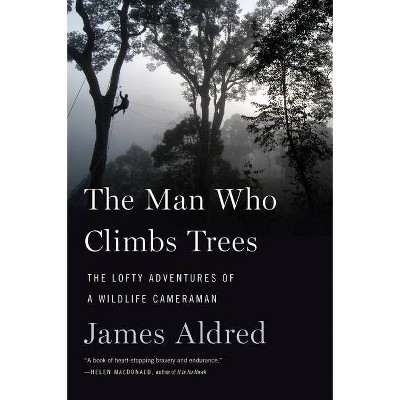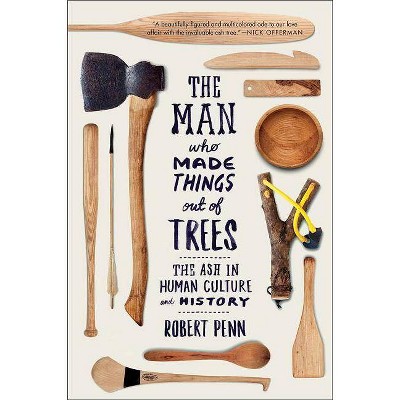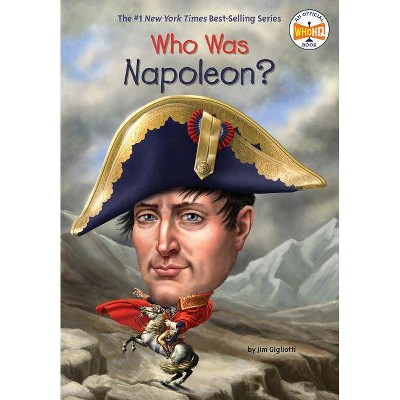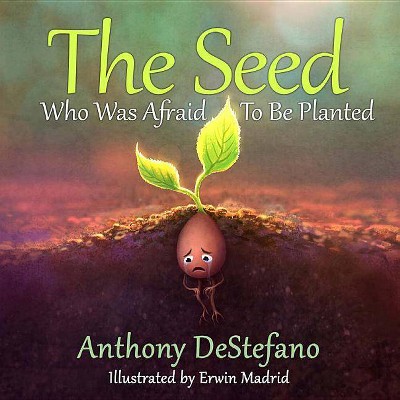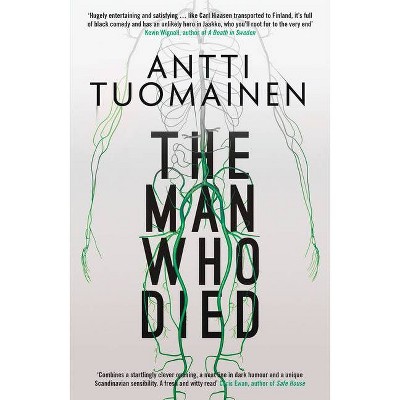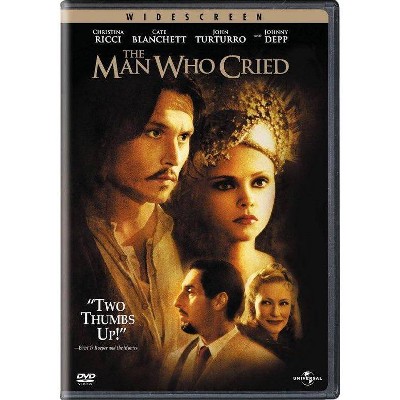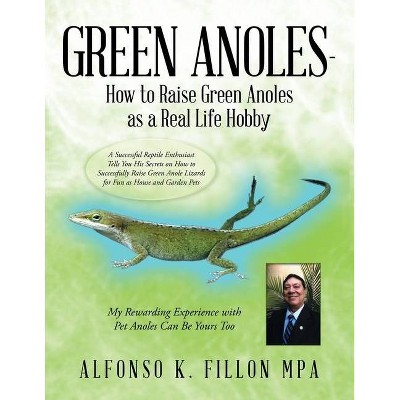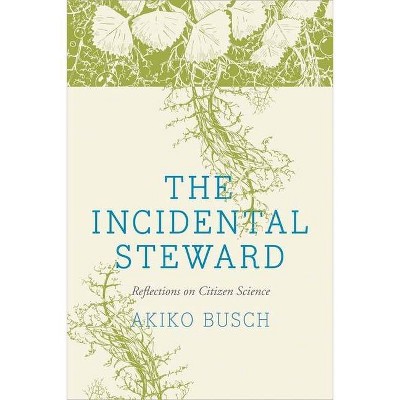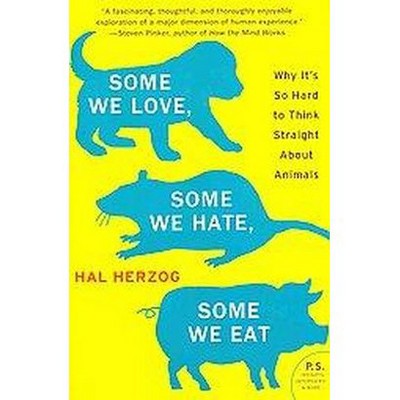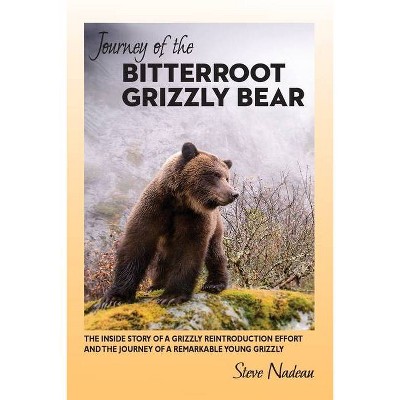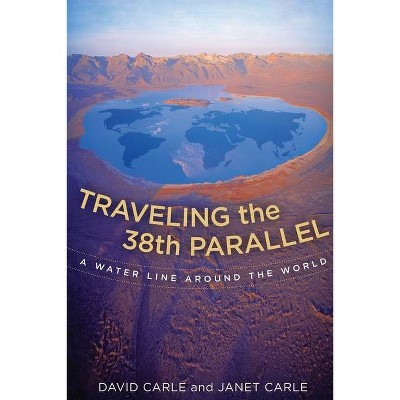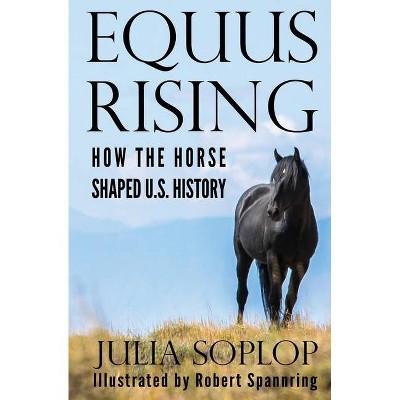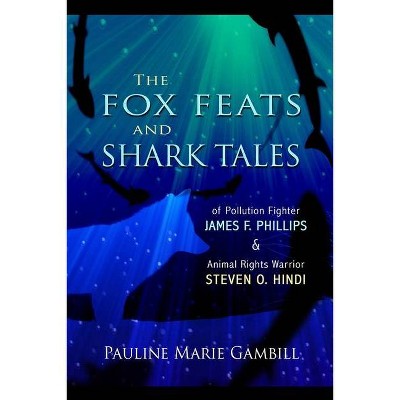The Man Who Planted Trees - by Jim Robbins (Paperback)
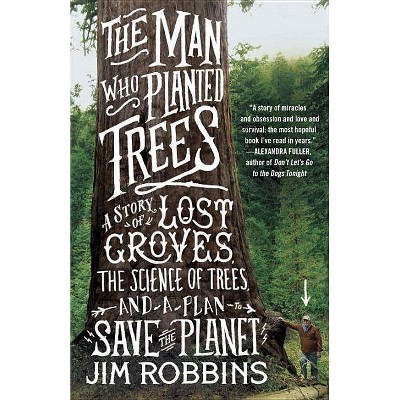
Similar Products
Products of same category from the store
AllProduct info
<p/><br></br><p><b> About the Book </b></p></br></br>2012 printing subtitled: Lost groves, champion trees, and an urgent plan to save our planet.<p/><br></br><p><b> Book Synopsis </b></p></br></br><p><b><i>The Man Who Planted Trees</i> is the inspiring story of David Milarch's quest to clone the biggest trees on the planet in order to save our forests and ecosystem--as well as a hopeful lesson about how each of us has the ability to make a difference.</b> <p/><i>"When is the best time to plant a tree? Twenty years ago. The second best time? Today."--Chinese proverb</i> <p/> Twenty years ago, David Milarch, a northern Michigan nurseryman with a penchant for hard living, had a vision: angels came to tell him that the earth was in trouble. Its trees were dying, and without them, human life was in jeopardy. The solution, they told him, was to clone the champion trees of the world--the largest, the hardiest, the ones that had survived millennia and were most resilient to climate change--and create a kind of Noah's ark of tree genetics. Without knowing if the message had any basis in science, or why he'd been chosen for this task, Milarch began his mission of cloning the world's great trees. Many scientists and tree experts told him it couldn't be done, but, twenty years later, his team has successfully cloned some of the world's oldest trees--among them giant redwoods and sequoias. They have also grown seedlings from the oldest tree in the world, the bristlecone pine Methuselah. <p/> When <i>New York Times</i> journalist Jim Robbins came upon Milarch's story, he was fascinated but had his doubts. Yet over several years, listening to Milarch and talking to scientists, he came to realize that there is so much we do not yet know about trees: how they die, how they communicate, the myriad crucial ways they filter water and air and otherwise support life on Earth. It became clear that as the planet changes, trees and forest are essential to assuring its survival. <p/><b>Praise for <i>The Man Who Planted Trees</i></b> <p/> "This is a story of miracles and obsession and love and survival. Told with Jim Robbins's signature clarity and eye for telling detail, <i>The Man Who Planted Trees</i> is also the most hopeful book I've read in years. I kept thinking of the end of Saint Francis's wonderful prayer, 'And may God bless you with enough foolishness to believe that you can make a difference in the world, so that you can do what others claim cannot be done.' "<b>--Alexandra Fuller, author of <i>Don't Let's Go to the Dogs Tonight</i></b> <p/>"Absorbing, eloquent, and loving . . . While Robbins's tone is urgent, it doesn't compromise his crystal-clear science. . . . Even the smallest details here are fascinating."<b>--Dominique Browning, <i>The New York Times Book Review</i> </b> <p/>"The great poet W. S. Merwin once wrote, 'On the last day of the world I would want to plant a tree.' It's good to see, in this lovely volume, that some folks are getting a head start!"<b>--Bill McKibben, author of <i>Eaarth: Making a Life on a Tough New Planet</i></b> <p/>"Inspiring . . . Robbins lucidly summarizes the importance and value of trees to planet Earth and all humanity."<b>--<i>The Ecologist</i></b><br> <i> </i><br> " 'Imagine a world without trees, ' writes journalist Jim Robbins. It's nearly impossible after reading <i>The Man Who Planted Trees, </i> in which Robbins weaves science and spirituality as he explores the bounty these plants offer the planet."<b>--<i>Audubon</i></b></p><p/><br></br><p><b> Review Quotes </b></p></br></br><br>"This is a story of miracles and obsession and love and survival. Told with Jim Robbins's signature clarity and eye for telling detail, <i>The Man Who Planted Trees</i> is also the most hopeful book I've read in years. I kept thinking of the end of Saint Francis's wonderful prayer, 'And may God bless you with enough foolishness to believe that you can make a difference in the world, so that you can do what others claim cannot be done.' "<b>--Alexandra Fuller, author of <i>Don't Let's Go to the Dogs Tonight</i></b><br> <i> </i> <br>"Absorbing, eloquent, and loving . . . While [Jim] Robbins's tone is urgent, it doesn't compromise his crystal-clear science. . . . Even the smallest details here are fascinating."<b>--Dominique Browning, <i>The New York Times Book Review</i></b> <p/>"The great poet W. S. Merwin once wrote, 'On the last day of the world I would want to plant a tree.' It's good to see, in this lovely volume, that some folks are getting a head start!"<b>--Bill McKibben, author of <i>Eaarth: Making a Life on a Tough New Planet</i></b> <p/>"Inspiring . . . Robbins lucidly summarizes the importance and value of trees to planet Earth and all humanity."<b>--<i>The Ecologist</i></b><br> <i> </i><br> " 'Imagine a world without trees, ' writes journalist Jim Robbins. It's nearly impossible after reading <i>The Man Who Planted Trees, </i> in which Robbins weaves science and spirituality as he explores the bounty these plants offer the planet."<b>--<i>Audubon</i></b> <p/>"Scientists can be confined by their own thinking--they know what they know. It's amazing for one layman to come up with the idea of saving champion trees as a meaningful way to address the issues of biodiversity and climate change. This could be a grassroots solution to a global problem. A few million people selecting and planting the right trees for the right places could really make a difference."<b>--Ramakrishna Nemani, earth scientist</b> <p/> "When a veteran science reporter meets an unlikely mystic to whom otherworldly spirits have given a mission--to save the DNA of the world's champion trees--you know you're in for a good story. Jim Robbins takes us along on a journey full of discovery, passion, and urgency and shows how one man's near-death experience may help the world's forests survive theirs."<b>--Dayton Duncan, author of <i>The National Parks: America's Best Idea</i></b> <p/> "This provocative and stimulating look at an emerging aspect of environmental study should serve as a clarion call to those concerned with the fate of the world's forests as well as of the stately shade trees in their own backyards."<b>--<i>Booklist</i></b><br><p/><br></br><p><b> About the Author </b></p></br></br><b>Jim Robbins</b> is a frequent contributor to the science section of <i>The New York Times</i>. He has written for <i>Smithsonian, Audubon, Vanity Fair, The Sunday Times, Scientific American, The New York Times Magazine, Discover, Psychology Today, Gourmet, </i>and<i> Condé Nast Traveler</i>. He lives in Helena, Montana.
Price History
Price Archive shows prices from various stores, lets you see history and find the cheapest. There is no actual sale on the website. For all support, inquiry and suggestion messagescommunication@pricearchive.us
